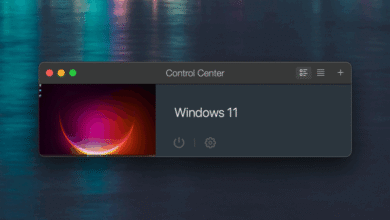Battlefield 6 insiders reveal troubling Dev Crunch: Can it beat COD, Fortnite amidst Chaos?

Battlefield 6 Developers Facing Extraordinary Stress: A Closer Look at Long Hours and Industry Pressures
The gaming industry has seen immense transformations over the last decade, driven largely by the intense competition among franchises like Call of Duty, Fortnite, and their contemporaries. With every new release, developers are under increasing pressure to outdo one another, leading to a stressful environment filled with tight deadlines and long hours. In this post, we’ll explore the pressures faced by the developers working on Battlefield 6, a title that aims to reclaim the franchise’s glory in an ever-evolving market.
The Burden of Competition
The landscape of first-person shooters (FPS) is dominated by a few major players, notably Call of Duty and Fortnite. With each title setting new benchmarks for graphics, gameplay, and user experience, developers at DICE, the studio behind the Battlefield series, have felt the weight of these expectations. In order to compete, teams feel pressured to produce more immersive experiences that can captivate audiences and retain player interest amidst fierce competition.
High Stakes and Higher Expectations
The stakes are higher than ever. Gaming has transformed from a niche market to mainstream entertainment, making it crucial for developers to create ‘hit’ games that can capture the attention of a global audience. This pressure manifests in a relentless drive to innovate and push boundaries, resulting in longer work hours and increased stress levels for developers.
Developers often find themselves caught in a cycle of demanding schedules as they strive to meet expectations that seem to rise constantly. The pressure to avoid declining sales and maintain the franchise’s status leads to a grueling work environment, where crunch time—a colloquial term for the intense work periods leading up to a game’s launch—becomes the norm rather than the exception.
Impact on Developer Well-Being
The human cost of this competitive atmosphere cannot be overstated. Reports indicate that many team members at DICE are experiencing extraordinary stress levels and facing burnout. The relentless pursuit of excellence often results in working long hours, leading not only to physical exhaustion but also to detrimental effects on mental health.
A Culture of Crunch
Crunch culture is pervasive within the gaming industry. For many, it has become an accepted part of development cycles, often portrayed as a badge of honor or a requirement to ensure a game’s success. However, this culture can have serious consequences, leading to high turnover rates, a toxic work environment, and ultimately diminishing returns on a developer’s creativity and productivity.
Many employees have reported working late nights and weekends, sacrificing personal time and mental well-being in the effort to meet project deadlines. This level of stress is not sustainable and can result in decreased job satisfaction, which ultimately affects the quality of the game being produced.
Burnout and Its Consequences
Burnout is a real threat among game developers, and its effects can be profound. The mental and emotional exhaustion that comes with prolonged periods of stress can lead to a lack of motivation and creativity, both of which are essential to producing innovative gaming experiences.
Effects on Game Quality
Interestingly, the stress and fatigue among developers do not only affect their well-being; they also impact the end product. Overworked and stressed teams are more likely to overlook critical details, introduce bugs, or deliver a game that lacks polish and innovation. While Battlefield 6 aims to redefine the franchise, the added burden on developers could ultimately hinder its success.
Solutions and Future Outlook
The industry needs to acknowledge and address the elephant in the room. Finding sustainable solutions for developers’ well-being should be a priority, ensuring that creativity is not stifled by undue pressure. Tackling crunch culture requires a systemic change in how projects are planned and resources allocated, fostering an environment that values both creativity and mental health.
Fostering a Healthy Work Environment
Creating a healthier culture for game developers includes setting realistic deadlines, encouraging regular breaks, and promoting a better work-life balance. Implementing strategies such as flexible hours, remote working options, and mental health resources can significantly alleviate stresses faced by developers.
Companies should also invest in team-building activities and peer support to create a sense of camaraderie that emphasizes mental well-being. Developers need to feel that their contributions are valued. This sense of appreciation can help mitigate stress and foster a positive workplace culture that prioritizes both the team and the product.
Conclusion: The Road Ahead for Battlefield 6 Developers
The launch of Battlefield 6 is an anticipated event for both fans and developers alike. Yet, in order to deliver a product that lives up to its legacy, DICE must prioritize the health and well-being of its employees. The gaming community deserves engaging and thrilling experiences—however, these can only be created by a team that is motivated, healthy, and inspired.
Balancing creativity with well-being is essential to not only the improvement of Battlefield 6, but also the industry as a whole. Addressing the stressors faced by developers will not only benefit them personally but also serve the wider gaming community by ensuring that the games produced are of the highest caliber.
Summary
- Developers at DICE are experiencing significant stress and long hours while working on Battlefield 6 due to competitive pressures.
- The intense competition with franchises like Call of Duty and Fortnite has created an environment of high expectations and demanding work schedules.
- Cultural issues, such as crunch, have serious implications on developer well-being, leading to burnout and decreased job satisfaction.
- Long working hours can impact the quality of the final product, posing risks to the franchise’s future success.
- Solutions must be implemented to foster a healthier work environment, focusing on mental health and work-life balance.
- Prioritizing the well-being of developers is essential for delivering engaging gaming experiences while also supporting the creators behind the games.





